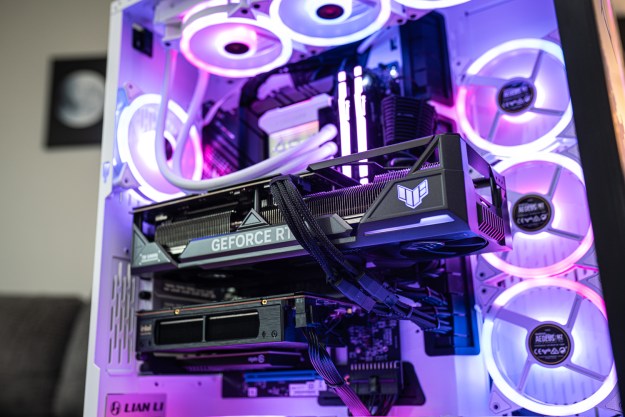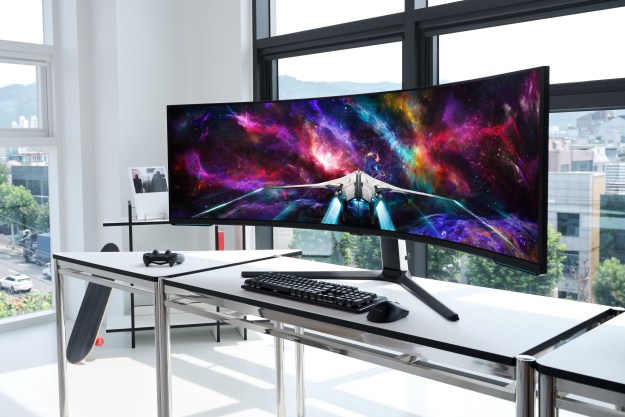Usually, the news that a research lab is being turned into a bar would suggest that it has failed and its researchers are throwing in the towel. But in the case of Facebook Reality Labs Research, a lab dedicated (in part) to coming up with creative new ways to improve hearing for members of the deaf or hard of hearing community, it showed that its work was paying off.
Facebook’s stated mission is to help people connect and communicate with one another. This is why, while it might seem off-mission to tackle this project, it actually fits perfectly into the company’s core competencies.

The problem Facebook has been trying to tackle is how to improve audio pickup for individuals in noisy environments. Although many people with hearing loss, depending on its severity, find it possible to hear and interact in one-on-one situations in quiet locations, noisy environments like bars or busy social settings can be a whole lot tougher. With that in mind, Facebook has been exploring how it can combine beamforming technology, deep learning, noise cancellation, and — perhaps most surprisingly — augmented reality (AR) to improve this situation.
In a recent project, Facebook scientists have been exploring how augmented reality glasses could help determine which sounds people want to amplify by looking at, well, where they’re looking. By matching a person’s focus, in terms of what they’re looking at, to audio inputs, AR glasses can figure out which sounds a person wants to hear and which they don’t — and then dial up or down the sound channels accordingly. As part of its experiments in this area,

“Many people with hearing loss don’t use hearing aids — in part — because they don’t work well in everyday situations like a noisy restaurant, a conversation involving multiple people at a loud party, or in a moving car,” Thomas Lunner, research lead for Facebook’s Hearing Science lab, told Digital Trends. “In conducting our enhanced hearing research for AR glasses, we realized that some of the discoveries we were making could be relevant to solving this problem. In [our new research], we show how augmented reality could supplement the hearing aid, through a system that understands what you want to listen to, isolates and enhances the sounds you want to hear, and reduces distracting background noise. By then sending the enhanced AR-processed signal to the hearing aid, you also get a system that adjusts for your unique hearing ability.”
Playing to Facebook Research’s strengths
Lunner is no novice when it comes to this area of research. He’s a renowned hearing scientist whose work laid the basis for what became the world’s first digital hearing aid in 1995. This research, while still in early stages, taps into a number of areas of research for Facebook, such as image recognition, natural language processing, and a whole lot more.
“Hearing sciences is an area we’re just starting to explore, so this technology is not available on any of our products, but we’re very excited about the possibilities with AR glasses,” Lunner continued. “We think they could one day help to deliver all sorts of enhancements, including helping anyone who has hearing loss or just has trouble understanding people at a party.”

Michael Abrash, chief scientist at Facebook Reality Labs, told Digital Trends that he believes that both augmented and virtual reality could have profound implications (and applications) in the accessibility space.
“AR and VR have enormous potential to benefit everyone, but they have especially high potential for people with varying physical abilities,” Abrash said. “For example, AR glasses may one day be able to enhance contrast in order to help people with poor vision see better, and may be able to provide visual feedback about ambient sounds and speech to the hearing impaired. As another example, we believe that VR — and eventually AR — will one day be able to create ultra-realistic virtual spaces and avatars that will enable those with mobility challenges to teleport to the office or to their grandmother’s living room.”

Facebook is, of course, best known for its social network. But just like Google parent company Alphabet, which explores self-driving cars, mapping systems and drone deliveries alongside search,
A paper describing the work, titled “Potential of Augmented Reality Platforms to Improve Individual Hearing Aids and to Support More Ecologically Valid Research,” was recently published in the journal Ear & Hearing.
Editors' Recommendations
- These 39-gram AR glasses have me excited for the future
- How to watch the Facebook Connect event online



